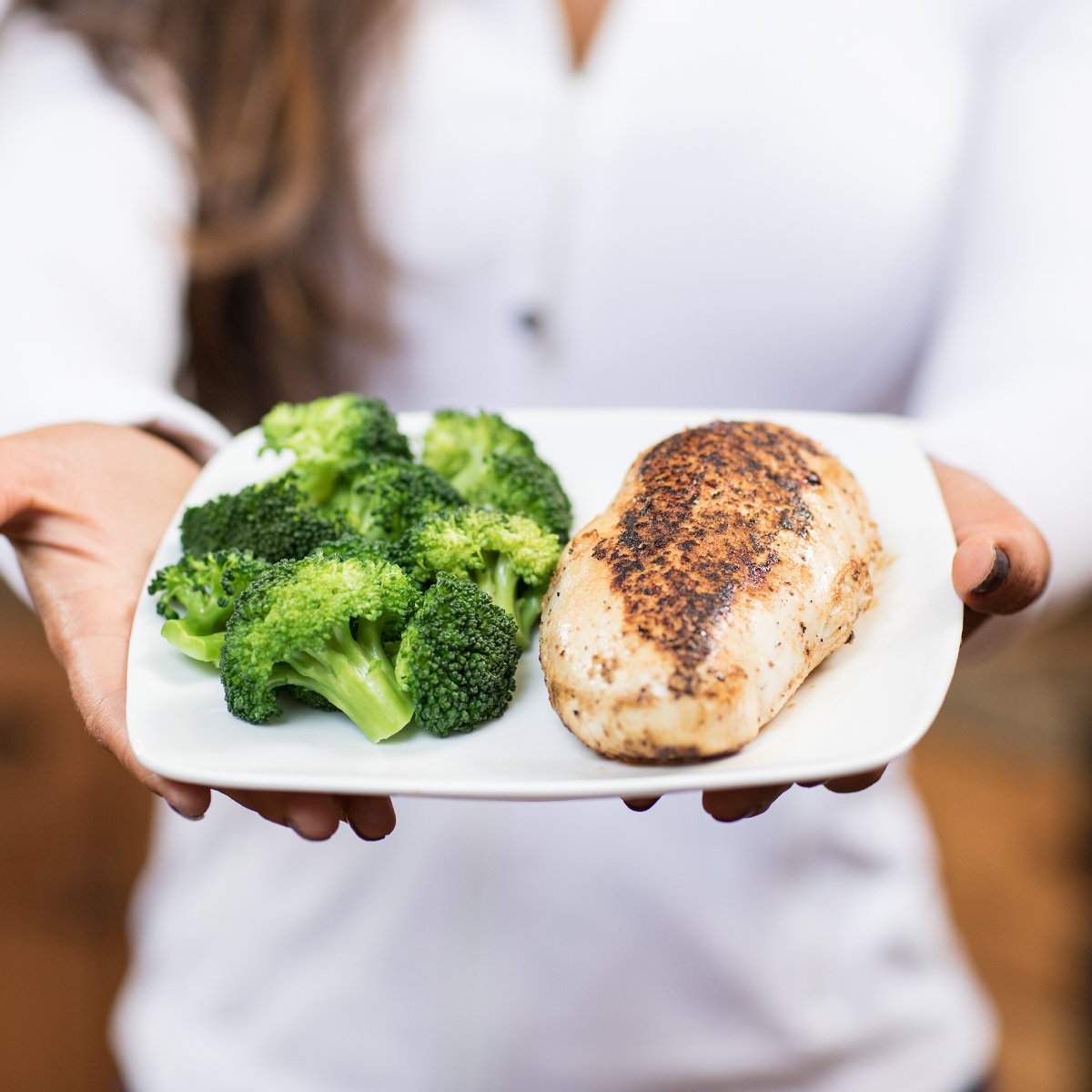More. In his article "How to Eat for Maximum Muscle at Any Age," researcher and world-class powerlifter Layne Norton, Ph.D., recommends aiming for these daily standards over the course of your life:
- Under 18 years: 0.6-0.8 grams per pound of body weight
- 19-40 years: 0.8-1.1 grams per pound of body weight
- 41-65 years: 1.1-1.3 grams per pound of body weight
- Over 65 years: 1.3-1.5 grams per pound of body weight
"Even if you don't measure it out to the gram, the lesson here is that as you age, you need more protein," Layne Norton, Ph.D., says.
As we age, our bodies become less efficient at using dietary protein. Over time, this deficiency, or "anabolic resistance" as it is also known, can lead to decreased strength and loss of both lean mass and mobility.
But staying physically active and eating adequate protein foods can help you stay in shape well into your golden years.
A common problem among elderly people is sarcopenia, or loss of muscle tissue. Protein can help reverse this natural process. A study published in the Journal of the American Medical Directors Association recommends that people over 65 years of age consume a minimum of 1-1.2 grams per kilogram of body weight per day to maintain and regain lean body mass. The same study recommends that older people continue to regularly perform endurance and resistance-type exercises, and notes that most older people with acute or chronic diseases need even more of the macronutrient each day.[5]


